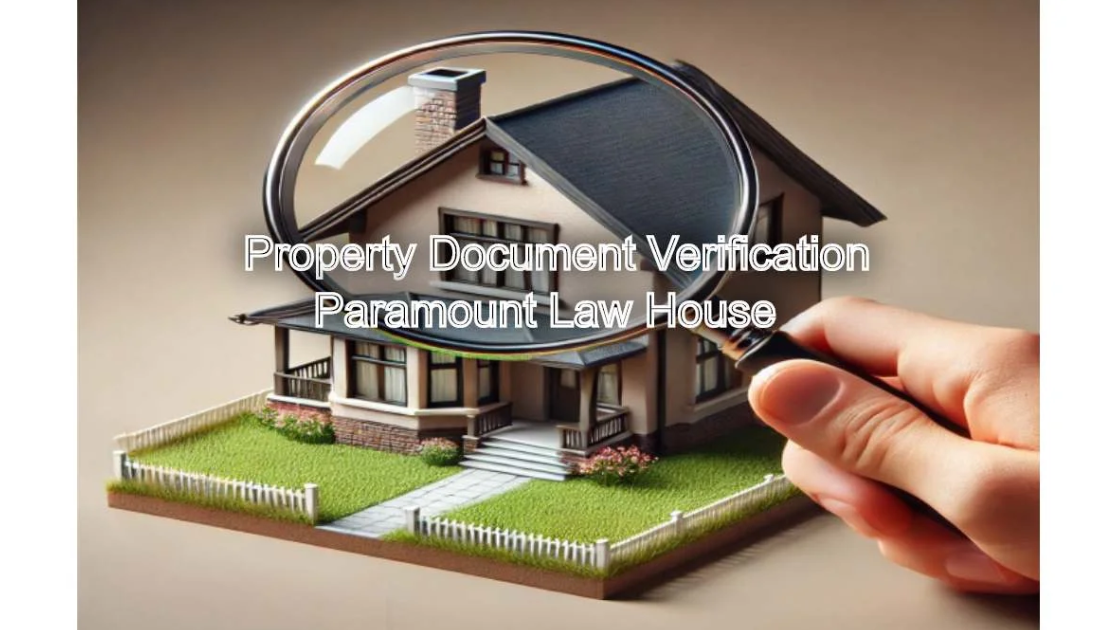Detailed View of Foreclosure Sale Document Verification
Introduction
Foreclosure sales offer a unique opportunity to purchase commercial land at reduced prices, often below prevailing market value. However, such opportunities come with a significant caveat—the need for meticulous document verification. Unlike standard real estate transactions, foreclosure sales are driven by legal action following borrower default, and properties are sold “as-is,” with no warranties from the seller. Therefore, verifying the accuracy, legality, and completeness of the documents associated with the sale is crucial for avoiding legal disputes, financial losses, or future possession issues. A thorough review of foreclosure sale documents is not just a technical formality—it’s a strategic step in protecting the buyer’s rights and ensuring the property’s legitimacy.
1. Title Deed and Ownership History
The cornerstone of foreclosure document verification is the title deed, which establishes the legal ownership of the land. Buyers must verify that the title is clear, marketable, and unencumbered. The deed should correctly reflect the seller’s legal authority—whether a bank, court officer, or financial institution—to foreclose and transfer ownership. It’s critical to trace the ownership history over the last 30 years through previous sale deeds, gift deeds, or partition agreements to confirm a clean chain of title. A break in the title chain, unregistered past transfers, or disputes among legal heirs can lead to ownership challenges after purchase. This process should be conducted by a competent real estate attorney or title verification agency.
2. Encumbrance Certificate (EC) and Lien Verification
The Encumbrance Certificate (EC) is an official record from the local sub-registrar’s office that shows whether the land is free of financial or legal liabilities. It reflects all transactions registered against the property, such as mortgages, sales, loans, or litigations. In a foreclosure scenario, the EC must be scrutinized to ensure that only the foreclosing lender has a registered lien and that no secondary charges exist. Additionally, buyers should check with local authorities for unrecorded encumbrances, such as unpaid property taxes, society dues, or statutory liabilities, which may not be reflected in the EC but still legally bind the new owner.
3. Auction Sale Notice and Foreclosure Order
Every foreclosure sale must be preceded by a legally compliant auction sale notice or foreclosure order. This document contains key information such as the borrower’s name, property description, outstanding loan amount, reserve price, EMD requirements, auction date, and terms of sale. The notice should also include confirmation that due process was followed, including proper public notice and communication with the defaulter. In judicial foreclosures, buyers must review the court decree, order of sale, and authority of the court officer to conduct the sale. Any deviation from legal foreclosure procedures can be used to contest the sale in court, putting the buyer’s rights at risk.
4. Possession Status and Property Condition Report
Another critical aspect of document verification is understanding the possession status of the property. The buyer must verify whether the land is vacant, encumbered, under litigation, or occupied by tenants. Official possession notices, eviction orders (if applicable), and inventory reports should be reviewed to determine whether vacant possession can be delivered after the sale. In some cases, the lender may attach a property condition report detailing physical features, boundaries, encroachments, and utility connections. These documents are important for assessing development potential, legal access, and risks associated with unauthorized occupants or constructions on the property.
5. Sale Certificate and Sale Deed Draft
Once the auction is successfully concluded and the full payment is made, the buyer receives a sale certificate—a legal document that confirms the transfer of property through foreclosure. The buyer must verify that the certificate is issued by an authorized officer, is duly signed, sealed, and mentions all critical details such as auction date, property location, buyer’s name, and final sale price. If the transaction is followed by a formal sale deed, especially in bank sales or public auctions, it should be checked for stamp duty clauses, indemnity conditions, and liability disclaimers. It is important to register the sale deed with the local sub-registrar and initiate mutation of land records to reflect the ownership change officially.
6. Development and Regulatory Clearances
Although not always part of the foreclosure package, it is advisable to seek and review any available building plan approvals, zoning certificates, or development permissions that were obtained by the previous owner. If the land includes existing construction or is meant for development, these documents provide insights into compliance with master plan norms, environmental regulations, and building codes. If any approvals were pending, expired, or granted conditionally, the buyer must be aware of the obligations before proceeding. Non-compliance could lead to project delays or demolition orders, even after legal acquisition.
Conclusion
Foreclosure sales offer excellent opportunities to acquire commercial land at attractive prices, but they also come with legal, financial, and procedural complexities that demand thorough document verification. From ensuring a clear title and checking encumbrances to reviewing auction procedures, possession status, and sale certification, each document carries significant implications for ownership and usability. Skipping or inadequately verifying these records can result in irreversible financial setbacks and prolonged legal entanglements. A well-informed buyer, guided by legal experts and backed by diligent documentation review, is better positioned to capitalize on foreclosure deals with confidence, clarity, and security.
Hashtags
#ForeclosureSale #DocumentVerification #RealEstate #PropertyAuction #ForeclosureProcess #LegalDocuments #HomeBuying #RealEstateInvesting #PropertyInvestment #ForeclosureTips #RealEstateLaw #AuctionProcess #HomeForeclosure #PropertyRights #RealEstateAdvice #InvestSmart #ForeclosureHelp #DocumentCheck #HomeOwnership #RealEstateMarket #FinancialLiteracy #PropertyManagement #LegalAdvice #HomeBuyersGuide




